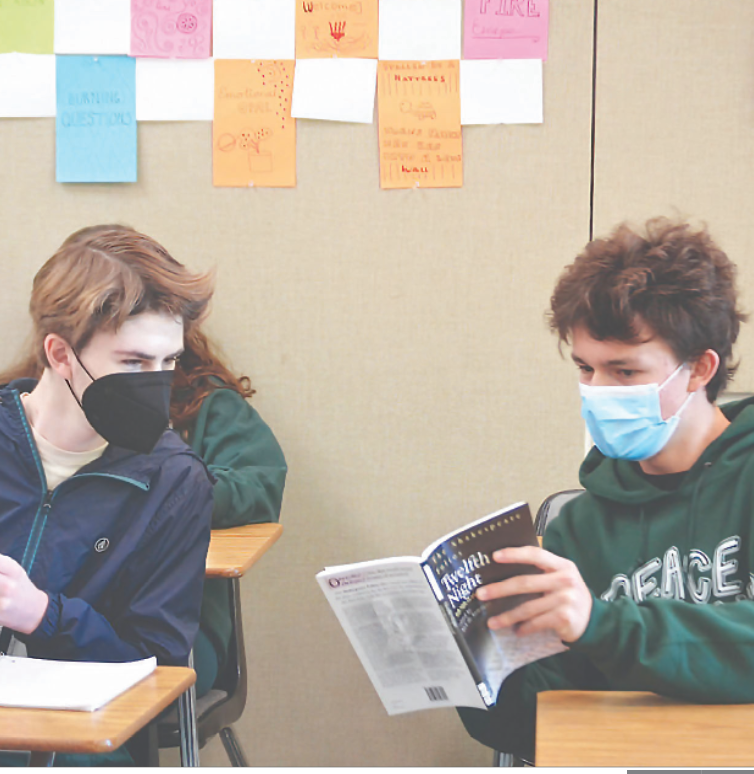Midterms week altered
While the school has done away with the midyear assessment week it used in previous years, some students still have to study for cumulative assessments before or after break for certain courses.
December 16, 2021
Before the COVID-19 pandemic, students spent the week leading up to winter break taking formal midterm assessments in Taper Gymnasium for their core classes. Nearly two years later, following the introduction of 75-minute periods, the school has eliminated mid-year assessment week, giving teachers the ability to choose when and whether or not to administer a cumulative mid-year exam.
Head of Upper School Beth Slattery said even prior to the pandemic, the school began to question the value of the scheduled midterm week.
“Lots of our teachers were articulating that in their class, they didn’t feel the need to do something cumulative, so why [should they] put kids through that if [they] don’t actually think it has pedagogical value,” Slattery said. “Then last year, with COVID-19, it certainly didn’t seem like a great idea to be having kids doing a cumulative assessment on Zoom. We were trying to find ways to make last year more manageable at a time when kids were really struggling.”
This year, Slattery said the school hopes to make the weeks surrounding winter break more relaxing, having phased out midterms.
“With the new schedule, you don’t need to have a week where you set aside two-hour blocks of time, because you now have 75-minute [periods],” Slattery said. “If teachers really want to do that, they can, but we found that not very many classes felt the need to do that. The point is, let’s try and make sure that people can actually get a break. I think everybody’s just trying to kind of downplay them because we don’t think that they’re as necessary anymore.”
Sophomore Prefect Glory Ho ’24 said she has only one official midterm, but she still finds the weeks leading up to winter break to be stressful.
“I’m taking [Advanced Placement] Latin, so the workload is pretty heavy and mostly memorization,” Ho said. “It’s my only midterm before winter break, but I still have regular tests from all my classes this coming week, so it’s hard to find time to study.”
Derek Wilairat, who teaches Ho’s AP Latin class, said having a midterm is necessary to keep students prepared and prevent them from falling behind for the official AP exam in May.
“We decided to have a midterm in AP Latin because of the particular nature of the class,” Wilairat said. “The midterm is a kind of practice run for the AP exam, and reviewing for the midterm helps us progress toward the mastery of the AP curriculum that we’re aiming for.”
Ceerous LeSage ’23 said that the lack of communication from the administration and from teachers has hurt his ability to prepare for exams and projects in advance. He said fluctuations in the school’s workload cause him immense waves of stress.
“I feel like it’s not really fair to the students because everything is unclear even as the administration tries to see what can be done about the cycle of work,” LeSage said. “It’s very apparent that it’s still happening and students really struggle through these stressful periods of time.”
Emma Miller ’23 said the removal of the midyear assessment week has damaged the spacing of exams and projects, allowing work to stack up on certain days.
“I think that not having a standardized system for testing before major breaks is a huge problem because all my tests seem to fall on one or two days,” Miller said. “For example, the Friday before winter break, I have three tests and a quiz. These assessments are pretty much impossible to reschedule, as taking them earlier would prevent me from attending review sessions, and pushing them until after the break would cause me to forget the material.”































